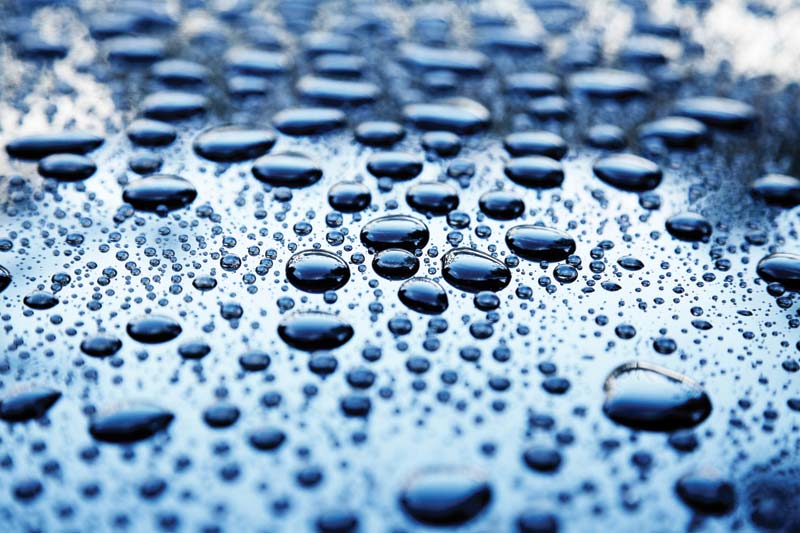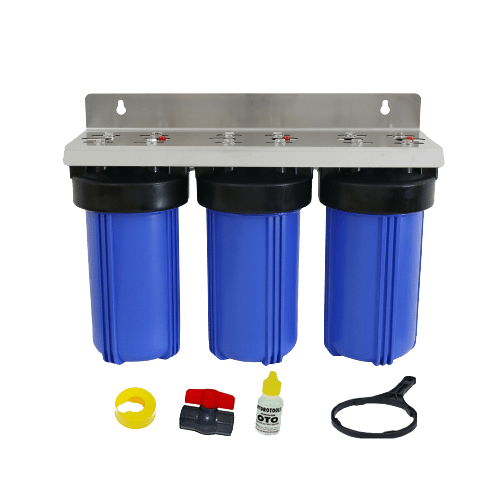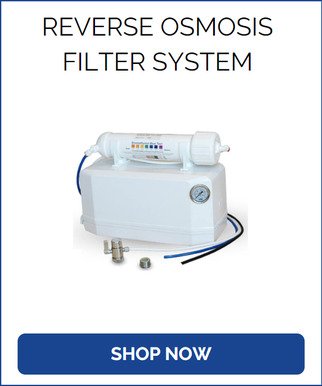Great Awesome Deals! Fast Shipping Across Australia!
Menu
-
-
Water Coolers
-
Water Filters & Purifiers
-
Water Filter System
-
Water Chiller
- Water Bottle
- Benchtop Water Purifier
- Water Distiller
- Replacement Water Filter Cartridges Guide
-
Locations
- Awesome Water Filters in Adelaide
- Awesome Water Filters in Darwin
- Awesome Water Filters in Hobart
- Awesome Water Filters in Brisbane
- Awesome Water Filters in Gold Coast
- Awesome Water Filters in Wollongong
- Awesome Water Filters in Sydney
- Awesome Water Filters in Melbourne
- Awesome Water Filters in Perth
- Awesome Water Filters in Canberra
-
- 1-800-789-781
- Login

Great Awesome Deals! Fast Shipping Across Australia!
How Often Do You Replace Water Filter?
September 04, 2021 5 min read

Water filters don’t have an expiration date. However, they do have a suggested lifespan. If you don’t change your carbon water filter regularly, your drinking water may develop certain unpleasant characteristics. So, how often do you replace water filter?
It’s time to replace the filters and cartridges. However, how often should you do it? Is it better to do it six or twelve months later? What happens if you don’t do it regularly?
Whether it’s 6 or 12 months, it’s a long period for any of us to keep track of. Time passes quickly, and life becomes increasingly frantic. Before you realize it, it could have been over a year since you requested a cartridge change.
Many filtration systems only require maintenance once a year. It would be best to visit a professional if you’re not sure when they last serviced your unit or the installation date. In this method, they will be able to perform inspections and necessary maintenance.
Professionals can also send you an email reminder when annual maintenance is required. Your filtration system will always be in good operating order as a result of this. You won’t have to be concerned about your water filters’ condition frequently.
Using a water filter to drink tap water instead of buying bottled water saves a lot of money. It’s also far more environmentally friendly. Here’s how to make sure your water filter receives replacement at the optimal time for you!
HOW OFTEN DO YOU REPLACE WATER FILTER: DIFFERENT TYPES
Whole House Water Filter

A whole-house water filter can ensure that your entire family has access to safe drinking water. The best method is to install it on the main supply line, which delivers water to all taps.
If you regularly change the filter regularly, you’ll always have clear water. The frequency with which you should do it mostly depends on the filter you select. Most traditional varieties need to be replaced every 2 to 6 months. The carbon filter will need to be updated every 4 to 6 months, while the well-sediment filters will frequently require replacement.
Reverse Osmosis
An RO system has numerous components, all of which need replacement at different periods.
The majority of reverse osmosis filter systems state:
- Every 6 to 12 months, pre and post-filters require replacement.
- If you detect a considerable decline in water going through the reverse osmosis system, you should replace the membrane every 2-3 years.
- For every other filter change on the pre and post-filters and every membrane change, you should replace the O-Rings.
Under Sink Filter
Your under-sink water filter will need to be replaced frequently due to its size. Depending on the model, you should perform it every six to twelve months.
According to some estimates, you should change the filter every:
- It will last nine months if the entire family uses it (high water consumption)
- It’s a year for a couple (average water consumption)
- It took fifteen months for a single user (low water consumption)
Refrigerator Water Filter
A refrigerator water filter is on the list if your refrigerator contains an ice maker or a water dispenser for removing pollutants. Because impurities in the water can create an undesirable taste and odor within your unit, you should replace it at least twice a year. Checking the instructions for the cartridge your refrigerator uses is the easiest way to avoid mistakes.
Shower Water Filter
These filters reduce the amount of chlorine, abrasive sediment, and heavy metals in the water you use for showering. As a result, they will lessen your skin’s inflammation. It’s entirely up to you whether you want to install a shower filter to a showerhead or buy one that already has one built-in.
The frequency with which you should replace your shower filter is determined by how much water you consume. The filter requires replacement every six months on average. Regardless of the time limit, you’ll most likely need to do it as soon as you’ve used 10,000 gallons (37,854 l) of water. Essentially, it will depend on the number of people in your household.
If you shower many times a day, you should replace the filter every 2 to 3 months. If you take a shower once a day, you should replace it every 4 to 5 months. In any case, the maximum amount of time you should wait before returning it is six months.
CHANGING WATER FILTER TIPS

- Save the packing from the last filter. It will have instructions on it, and you can reuse it when recycling it.
- When you open the container containing the old filter, have the new filter ready to go.
- Prepare a watertight container to receive the old filter.
- After changing the filter, wear gloves or thoroughly wash your hands.
- Allow water to pass through the filter after you’ve changed it to remove any remaining pollutants and prime the new filter. Drink only the tap water once the filter has been replaced. The water should be absolutely fine to drink after a few minutes.
- And, of course, don’t allow the first water to go to waste. Use it to water your plants or use it to clean the bathroom.
INLINE WATER FILTRATION
The frequency with which you must execute this task varies depending on how much water you use and the quality of your water. However, every 3-6 months is a decent rule of thumb. Let’s take it a step further. Your inline water filtration system is most likely a 5-stage system, and it’s easiest to think of it as a unit that runs on a one-year cycle. The vast majority of systems uses the following:
- 1: 2 – 5-micron sediment filters (change every six months).
- 2 & 3: Carbon filters, 4–5 microns (change every six months).
- 4: 1 – reverse osmosis membrane (change every 3-5 years).
- 5: 1 – post-carbon inline filter (change every 12 months).
What happens if your filters aren’t changed?
How about a little bacteria in your glass, laced with pesticides? As previously said, aged water filters will fill with sediment, slowing the flow of water and causing it to smell and taste strange. Also:
- You will now be consuming potentially dangerous substances that can cause health issues.
- Mineral deposits on your faucets and sinks may occur as a result of mineral buildup.
- It will shorten your water filtration system’s lifespan.
You can avoid all of these issues by following a simple one-year maintenance regimen.
FINAL THOUGHTS
The purity of water is critical to the performance of many home systems and appliances. A faucet water filter, for example, can help eliminate undesired pollutants from your water, resulting in a better-tasting glass. Knowing how often do you replace a water filter helps keep your water quality at its best.
Subscribe
Sign up to get the latest on sales, new releases and more …


